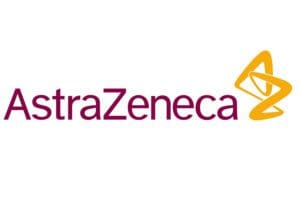 AstraZeneca has denied news reports that the British pharmaceutical company is involved in talks with U.S. authorities about an emergency use authorization for its COVID-19 vaccine candidate.
AstraZeneca has denied news reports that the British pharmaceutical company is involved in talks with U.S. authorities about an emergency use authorization for its COVID-19 vaccine candidate.
The denial comes after recent news reports claiming the Trump administration is eyeing a plan to fast-track the vaccine candidate, AZD1222, before the upcoming Nov. 3 presidential election.
“AstraZeneca has not discussed emergency use authorization with the U.S. government, and it would be premature to speculate on that possibility,” AstraZeneca spokesperson Brendan McEvoy told Drug Discovery and Development via email..
While AstraZeneca has denied these discussions, that didn’t stop shares of the company to climb following news of the current U.S. presidential administration’s interest in securing the emergency use authorization for its vaccine.
According to a report from The Financial Times, members of the Trump team, including White House chief of staff Mark Meadows and Treasury Secretary Steven Mnuchin, are discussing the prospect of the emergency use authorization based on findings from an ongoing study in the United Kingdom. The problem is this study included only 10,000 patients, which is a far cry lower than the 30,000-patient trials required by U.S. government agencies to issue approval for such an authorization.
Current research trajectory of AZD1222
The AZD1222 vaccine candidate, developed by the University of Oxford, is currently in larger phase 2/3 testing in Brazil, South Africa, and the United Kingdom. Just last month, AstraZeneca released interim data from a phase 1/2 trial of 1,077 healthy adults, which showed that AZD1222 was well tolerated and produced robust immune responses against severe acute respiratory syndrome coronavirus 2 (SARS-CoV-2) in all patients. And although a 30,000-patient phase 3 trial started Aug. 17 in the United States, it’s unlikely that sufficient efficacy and safety data will be available before November.
AstraZeneca was planning to deliver at least 300 million doses of their vaccine in October, under the company’s collaboration with the U.S. Department of Health and Human Services (HHS) and within the terms of President Trump’s Operation Warp Speed initiative. In addition to the states, AstraZeneca has recently entered an agreement with the European Commission to provide up to 400 million doses of the company’s COVID-19 to all member states of the European Union (EU) following approval. The agreement will also allow the EU member states to send doses to other European countries.
The AZD1222 vaccine candidate is the fourth to receive financial backing from HHS’ Biomedical Advanced Research and Development Authority (BARDA), which is currently supporting 32 medical products related to SARS-CoV-2 under the Operation Warp Speed program. In a previous statement from the HHS, BARDA can offer up to $1.2 billion to support advanced clinical studies and “scaled-up manufacturing” of vaccine candidates and medicines for COVID-19.
But considering efficacy data on the vaccine are currently limited, AstraZeneca now plans to push delivery of the first doses by the end of 2020 and early 2021, if their larger clinical trials prove the candidate is well tolerated and effective against SARS-CoV-2.
Democrats cite concerns over emergency use authorization for AZD1222
While several allies to the Trump administration may see rapid approval of a COVID-19 vaccine as a key factor for helping President Trump’s reelection, there are major concerns over rushing a vaccine to market without adequate safety and efficacy data to back its use. These concerns were amplified following recent tweets made by President Trump, who claims the FDA is harboring “deep state” employees who are “making it very difficult for drug companies to get people in order to test the vaccines and therapeutics.” He added that “they” are trying to delay an answer from testing until after the election. Some critics believe these statements allegedly suggest the FDA is attempting to undermine President Trump’s reelection campaign through deliberate attempts to thwart vaccine progress.
Democratic leaders of the House Committee on Energy and Commerce recently wrote to the FDA Commissioner Steven Hahn about their concerns, citing the Agency’s own guidance, which states that “any authorized or approved COVID-19 vaccine would need to show in a placebo-controlled randomized trial that it prevents the disease” or reduces its severity for at least half of people who receive the vaccination. Therefore, the guidance itself may prevent the Agency from issuing an emergency use authorization for the candidate, especially within the next three months.
And although the Committee’s letter emphasized the desire to have “a safe and effective COVID-19 vaccine as soon as possible,” the organization noted that a vaccine will be unlikely prior to spring 2021, based on the time required to enroll and conduct phase 3 trials as well as the time needed to monitor safety outcomes. The letter also asked Hahn about whether the FDA has any safeguards in place “to mitigate against any political pressure” from President Trump and to prevent the appearance of any pollical expediency or interference.